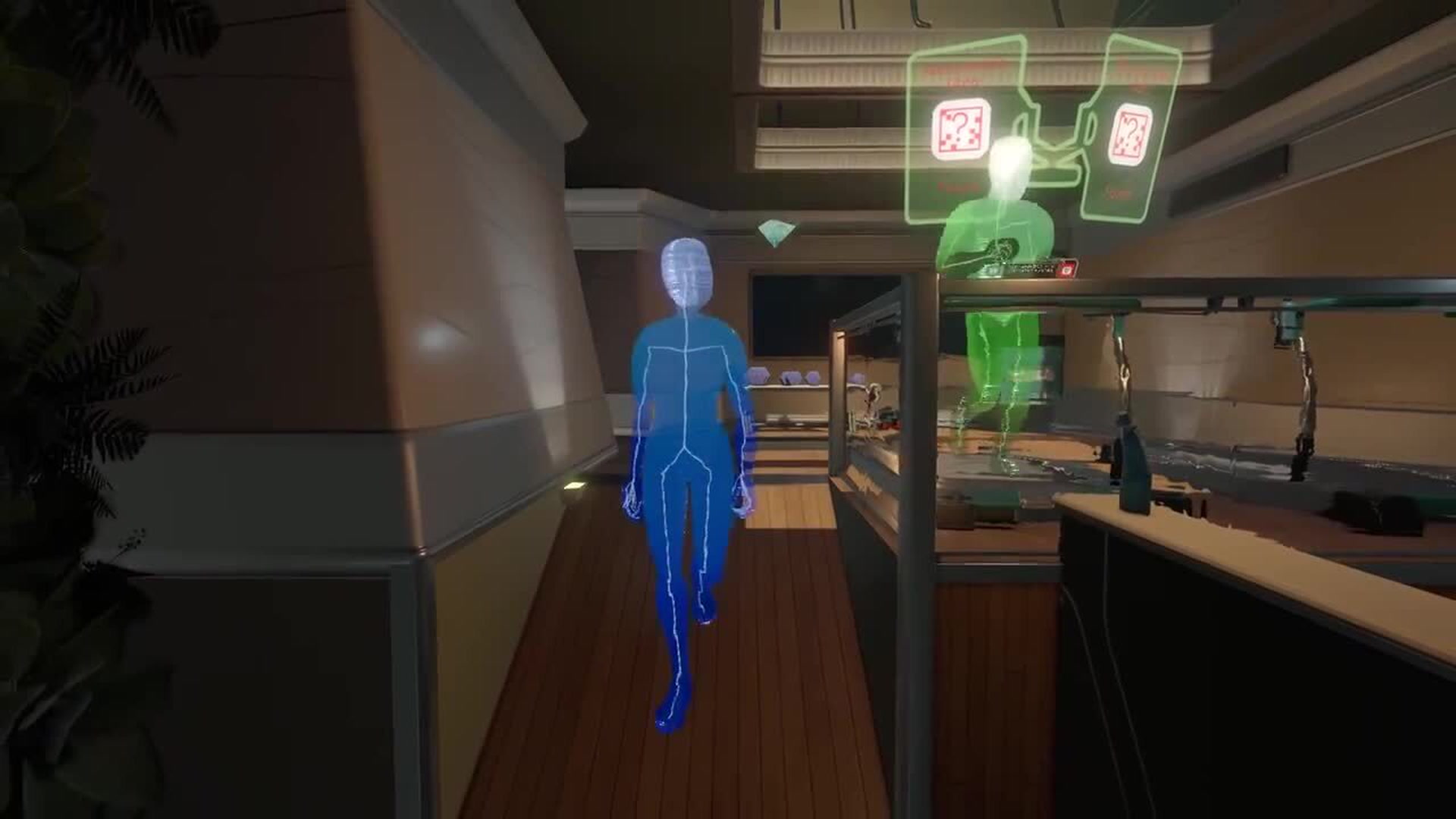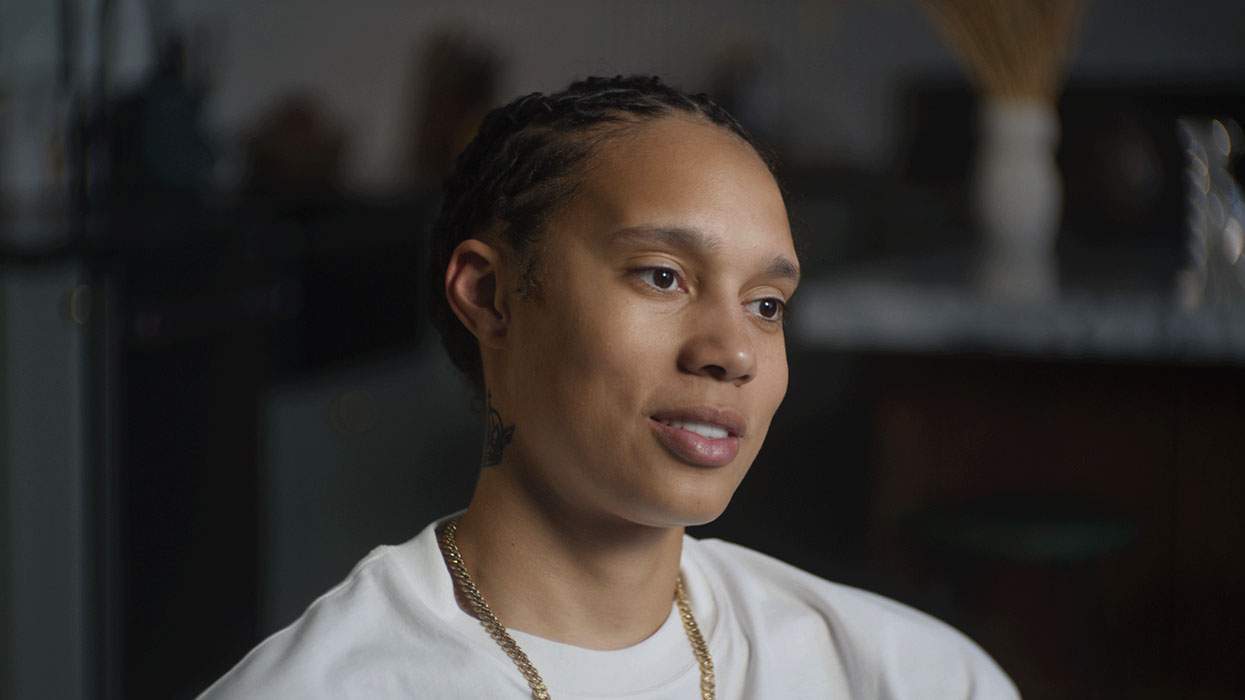The Fullbright Co. released the video game Gone Home to widespread acclaim in 2013. At the forefront of the growing indie video game market, Gone Home told the story of a teenage girl in 1990s rural Oregon learning about her sexuality and coming out to parents who don't readily accept her. Gone Home went on to be a commercial hit and win several Game of the Year and Best Story awards.
Today, Fullbright releases its next game, Tacoma, which follows the crew of an evacuated space station, several of whom are queer. The Advocate sat down with Fullbright cofounders Steve Gaynor and Karla Zimonja to talk about Gone Home and Tacoma, the LGBT context of both games, and what they learned making them.
The Advocate: What made you decide to make Gone Home about a teenage girl finding her sexuality?
Karla Zimonja (Fullbright cofounder): I think the simple answer is that it seemed like a really interesting unexplored story to tell.
Steve Gaynor (Fullbright cofounder): We came from working on the Bioshock series together. Those are story games, but they're also big action games, shooter games. So when we were starting our small studio, we were like, "How can we make a small project?" We took that kind of first-person exploration story part of those games and were like, "OK, that will just be the whole game." That just means at that point you can practically tell a story about anything -- it doesn't have to be about a war-torn city or anything that has enemies or monsters.
Zimonja: It can be small.
Gaynor: Yeah, it doesn't have to be a certain scale. ... We had that opportunity to talk about something that we didn't feel like we saw very much in games and give players access to that kind of story, which was exciting for us.
You set Gone Home in the 1990s, which is obviously a different time for LGBT issues within the United States. What made you decide to set it then?
Gaynor: The '90s were the most recent time in history that could be totally analog. We could buy that this family didn't have a computer in their house. We wanted it to be about finding notes and mixtapes and all these physical artifacts in the house. [It was] right at the beginning of a cultural turning point in the U.S. for more visibility and mass acceptance of LGBT [people] in media and in everyday life. I think that having that perspective, being able to look back at this as an earlier time but with these kind of human interactions that are still familiar throws it into relief in an interesting way.
Zimonja: It's weird, when you were talking about that I just realized that people could play it and not have that context at all and just be, "It's Oregon."
Gaynor: It's something that we talked about. I know of people who have played the game that weren't alive when it took place. It's 2017. There are people born in the 2000s who I'm sure have played it and that perspective versus people who lived at that time and have the memory to be like, "Oh, 'don't ask, don't tell,' I know what that's a reference to intuitively because I remember it" versus, "Oh, I've only lived in the time past that." Because if you set something in the 1890s, it's kind of an abstract idea for everyone. But to have this generation gap between lived experience and too young to have had that experience is fascinating.
Zimonja: It occurs to me that people who don't have the historical context would read the conflict as just social. It's just my parents don't agree with it and kids at school because kids at school are terrible. It would just all pile on with that. It's possible that it would still work.
You positioned the player not as some ghost walking through the house but as the sister Katie. What do you think that brought to the sense of discovery?
Zimonja: One of the important aspects of the player character being Katie is that hopefully you would have a ready-made connection with the characters.
Gaynor: A big part of the player's context for a game is what their role is, and so we wanted to give players permission to be noisy and to have a motivation to find everything. It's not that you're just breaking into this house or you're a cop. We wanted the game to tell you it's PK. You're part of this family; you're supposed to be in this house. But they are gone so this is what you should be doing. On the flip side of that, once you take on that role, you start seeing it as this is my family; this is my sister. I have an additional connection to this place that I'm gaining context for. It allowed us to directly address the player and put you into this dialogue with your sister. My sister is trying to communicate with me.
Zimonja: If you don't have that, there is really this constant tension between "Oh, I'm not supposed to be here" or you desensitize yourself from the idea and that precludes you from connecting with the characters. Giving permission like that is an important aspect.

So there are LGBT characters in Tacoma. What did you learn dealing with LGBT issues in Gone Home that you brought to Tacoma?
Gaynor: As the writer, the biggest thing for me working on Gone Home was acknowledging that I wasn't writing from my own personal experience. I need to do my research, reading people's experience of being a queer woman coming out a teenager or a queer person in the '90s. But also finding people in my life that I could actually interview about their experience and memories. To give me context and a lens that wasn't just the general media representation. These specific people or stories make me think of what the experience might be like in a more nuanced way. With Tacoma, just that approach of gaining perspective to depict these characters in a way that is authentic and respectful and as fully realized individuals who have LGBT identity as part of their life but that they are fully fleshed out individuals.
Zimonja: If you don't do your research, you're just writing cliche, and we don't want to do that. [Also] as our game is 70-some years in the future; we also get the distinct pleasure of just having people's sexual orientation not being a big fucking deal [laughs]. It's just the people on the station and it's normal and nobody bats an eye.
Gaynor: On Tacoma, there's a group of six crew members who are all stuck on this space station together for a year. I think it's true that in that dynamic of small, tight-knit groups that all have to rely on each other, at some point you're like, there's only six people on this station. I think it's an interesting dynamic for us to be able to go from a game where a big part of the narrative was about this queer character's identity and then for this game to be about adults in a totally different context. Yes, there are queer characters here but it's not the source of drama.
Zimonja: It's nice to be able to show queer people in different situations. I consider that kind of a gift. We do have a queer couple on board [the space station] and it was cool for us to show them interacting.
Gaynor: Gone Home was sort of about normality and normal family, but because Tacoma is about looking in on these small moments with the crew, we have this opportunity to actually depict moments of normalcy. Finding these opportunities to show different parts of these people's lives is awesome.
There's been a lot more LGBT characters in games, from Chloe in Life Is Strange to Ellie in The Last of Us. How do you feel about your role in that shift?
Gaynor: I think in some ways that it's a representation of the broadening of games in general. Gone Home came out right at the crest of these indie games and smaller games being produced more and gaining more attention. That gave us the opportunity, because we were literally making our game in a basement, to say that we are going to make this about whatever character we want and we don't have somebody in a boardroom saying, "Who's going to buy that." Then when you mention the The Last of Us, that these big huge games are able to look at what the audience responds to by saying, "We can put these kinds of characters in our multi-million dollar game because people are interested in having that be part of the experience."
I'm glad we were able to make Gone Home when we were because it was a good point in time to say this is what games can do and have people notice it. And I've know that we've gotten feedback from people saying, "I never saw myself or someone like me front and center in a game before," and that means something. It wasn't our goal. We were focused on the story and the characters but once that's out there and people play it and see themselves in something they love, that's a cool thing to know we were a part of.
Zimonja: The landscape is populated with so much and so broadly. People can play games and feel like it's speaking to them.
Do you think there should be more LGBT stories told in video games?
Zimonja: There's that problem in media where there's only a few representations of a thing and people say, "This isn't everything for me." Well, that means there needs to be more.
Gaynor: I want to see more kinds of stories and more kinds of things addressed. As someone who has played games my whole life, it's always inspiring when I play a game that's about something that I've never heard before. This is a perspective that is exciting because I haven't been this kind of person in a game 100 times before. LGBT characters and issues have a very direct connection to a lot of people's lives that is an important part of that. More perspectives that are underrepresented being part of what you can experience in games is exciting.
Zimonja: It is pretty clear that people are hungering for stuff that reflects their lives and their perspectives and also enriches the lives of people who don't have the same perspective. It seems like there's no downside.
Tacoma is available today on PC, Playstation 4, and Xbox One. JESSIE EARL is a video producer for The Advocate. Follow her on Twitter @lostrekkie.















Charlie Kirk DID say stoning gay people was the 'perfect law' — and these other heinous quotes
These are some of his worst comments about LGBTQ+ people made by Charlie Kirk.